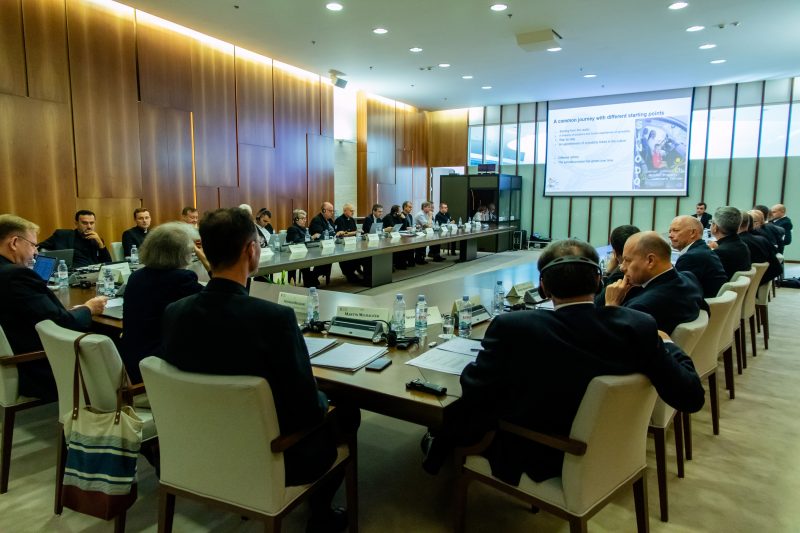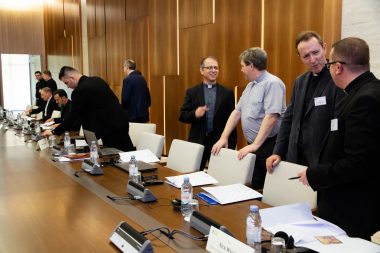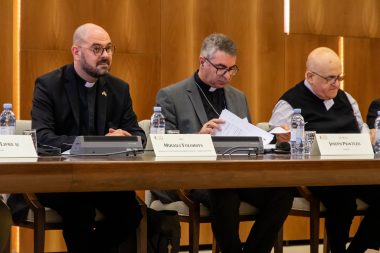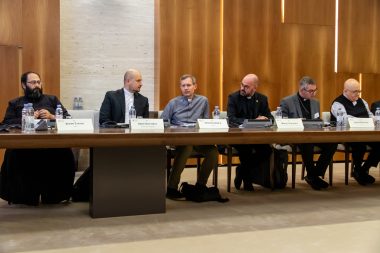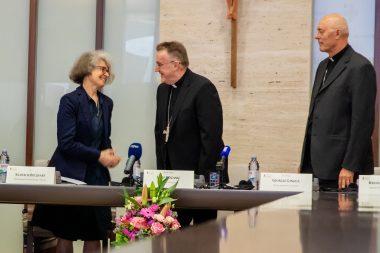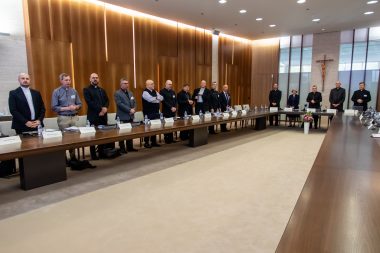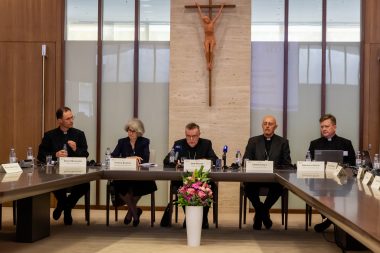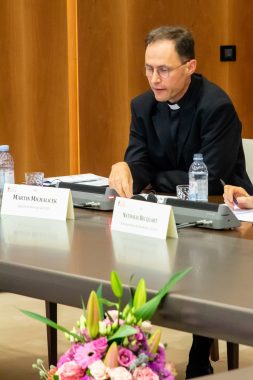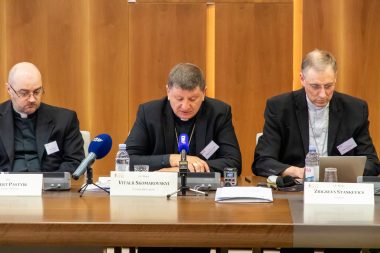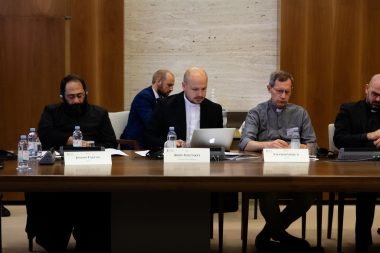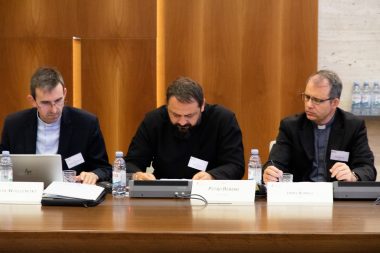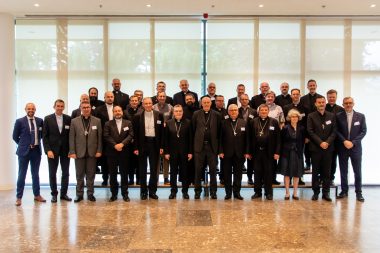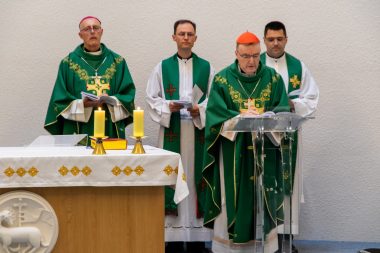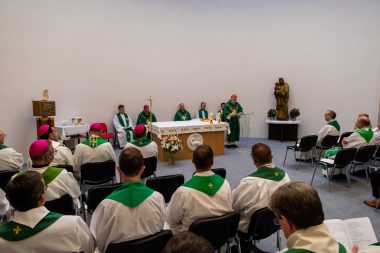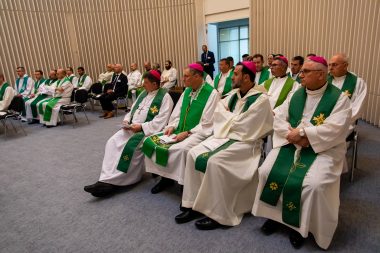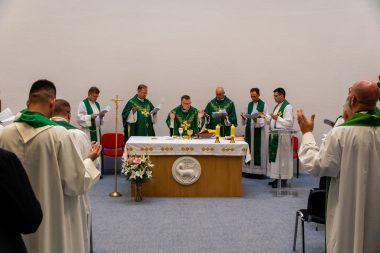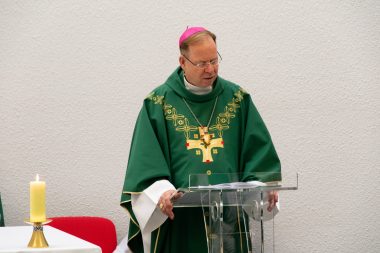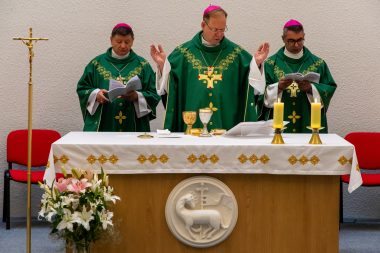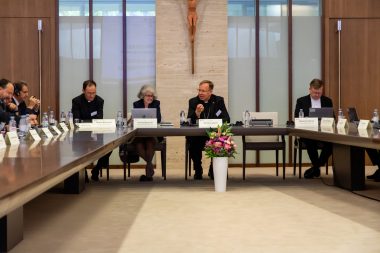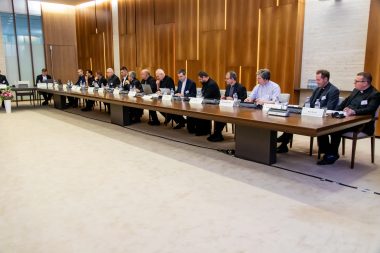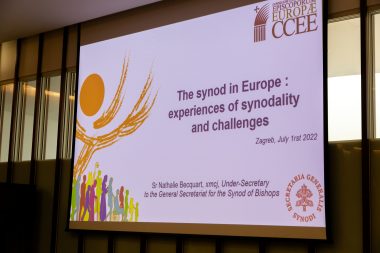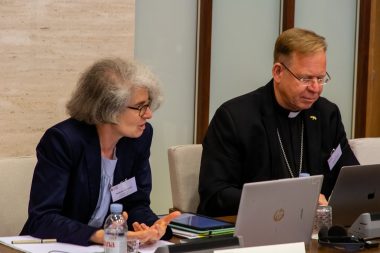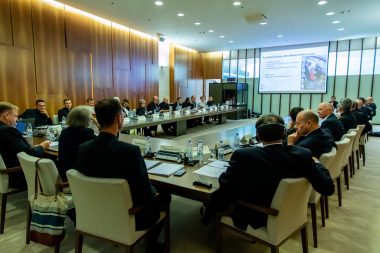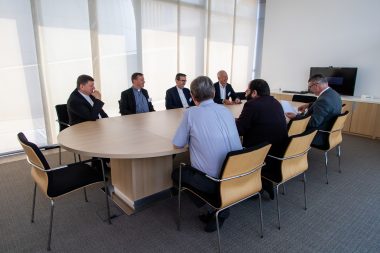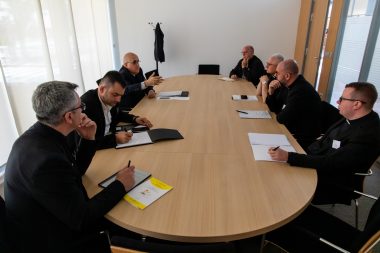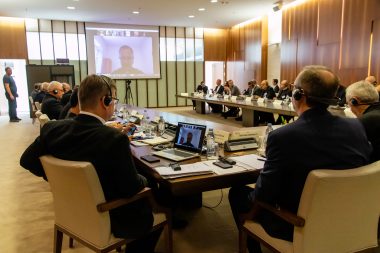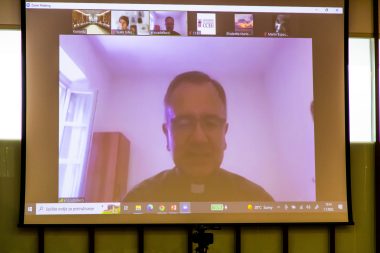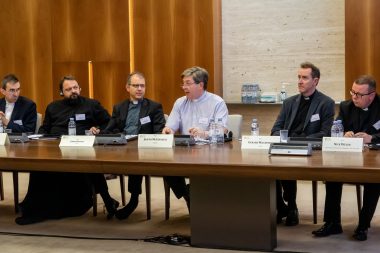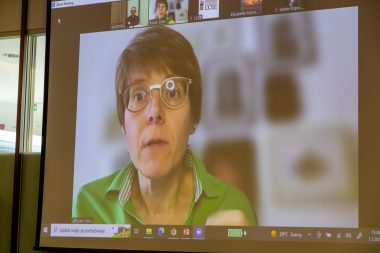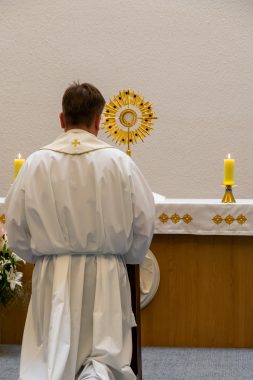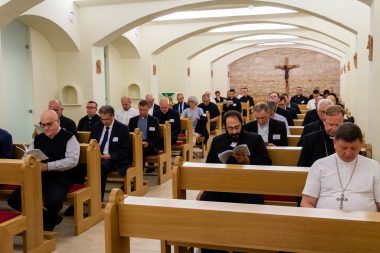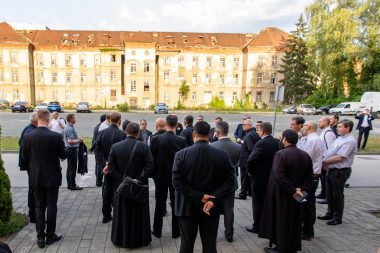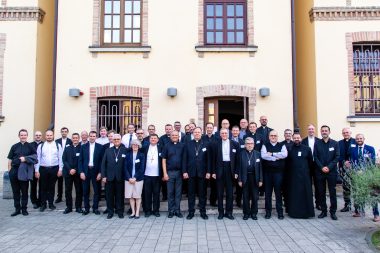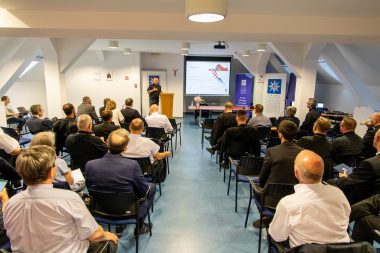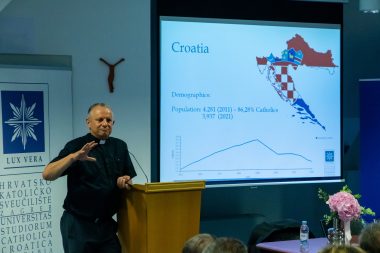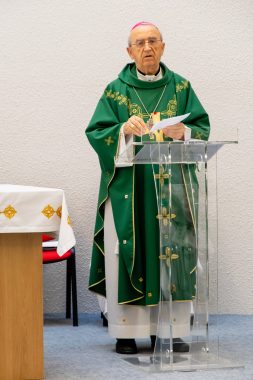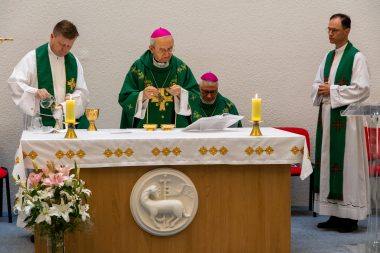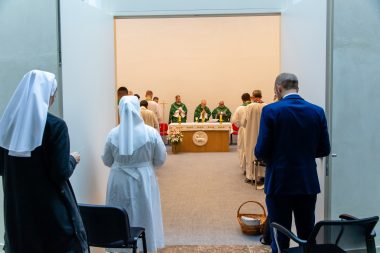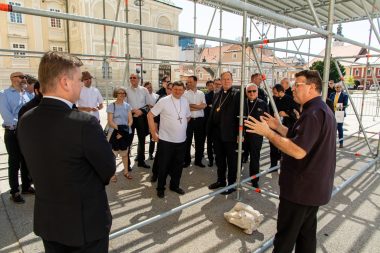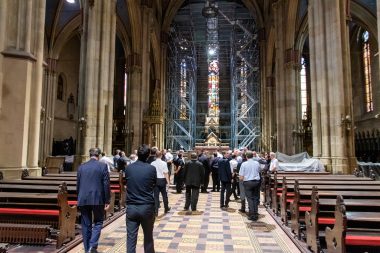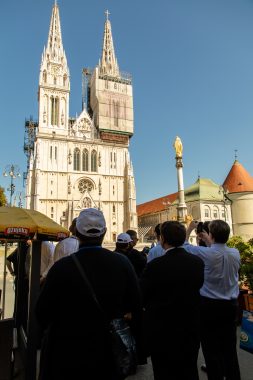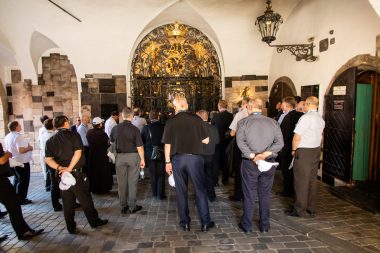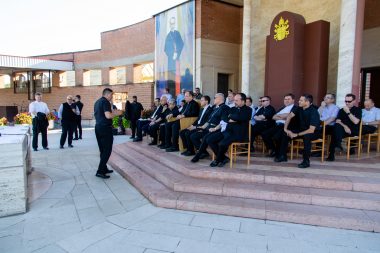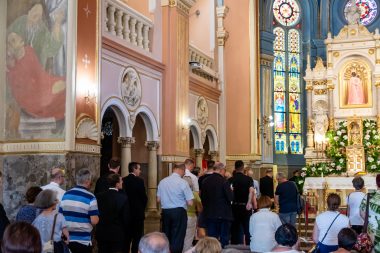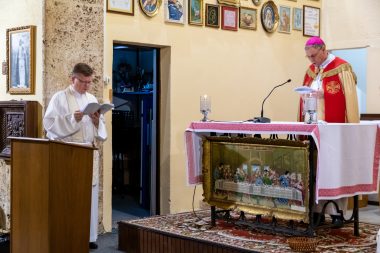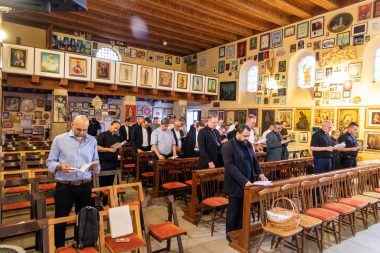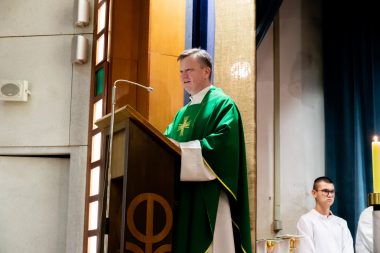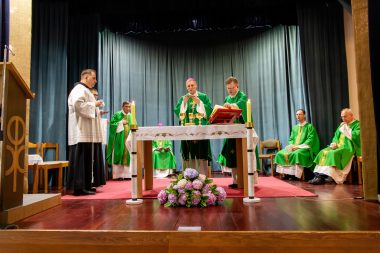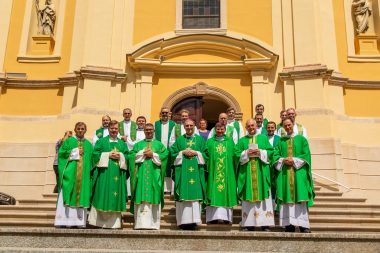From 30 June to 3 July, at the Headquarters of the Croatian Bishops’ Conference, was held the meeting of the General Secretaries of the European Bishops’ Conferences entitled, “The Church in Europe on the Synodal Path”.
Welcoming the participants was H. Em. Card. Josip Bozanić, Archbishop of Zagreb, who, in his speech, stressed the generosity of people, especially young people, in helping those in need during the recent earthquakes in Croatia and during the pandemic. Regarding the theme of the meeting and the synodal path involving the whole church, the cardinal added that “Synodal dynamics have always followed the CCEE’s activity from the very beginning. The Church, in fact, is constitutively synodal and every truly ecclesial activity has within it that dynamic which allows us to be obedient to the Holy Spirit”. And he concluded his greeting by expressing his closeness to the Ukrainian people: “We cannot overlook what has been happening in Ukraine in recent months. We are witnessing a human tragedy, a war scenario that brings with it death, suffering, broken families, the entire population forced to leave their homes to take refuge elsewhere, men forced to fight, destruction… The question is: where is Europe going? Where has the United Europe project gone? The project of a united Europe was born precisely to remove the scourge of war from European soil. Unfortunately, among other things, it already showed its limitations in the 1990s, in this very part of Europe”.
After recalling Pope Francis’ many appeals for peace in Ukraine, H.E. Msgr. Giorgio Lingua, Apostolic Nuncio to Croatia, emphasised the need to look with the heart: “Perhaps, if we look with the heart, we can better understand how to enlighten the mind and find new ways to listen to the peoples cry for peace… Sometimes, in fact, it is not enough to think that what we are doing is right and legitimate. A heart that considers the consequences calls us to consider the incalculable collateral damage caused by the conflict, which falls, as it often does, on those who have nothing to do with it and already bear the burden of so many other injustices”.
This was followed by an account of the current situation in Ukraine by the three Ukrainians taking part in the meeting: the Bishop of Lutsk, H. E. Msgr. Vitalij Skomarovskij of Lutsk, Fr Andriy Soletskij of the Ukrainian Greek Catholic Church, and Fr Petro Beresh from the Eparchy of Mukachevo.
At the centre of the proceedings, was the Synod on Synodality and the synodal journey that the churches in Europe are currently experiencing. Sister Nathalie Becquart, undersecretary of the General Secretariat of the Synod of Bishops, gave the keynote address entitled: “The Synod in Europe: experiences of synodality and challenges”. Underlining the fact that this synod is the most important historical event since the II Vatican Council because the whole church is convened in synod, and quoting Pope Francis, she recalled that “synodality is the way of being church today according to God’s will in a dynamic of listening to, and discerning, the Holy Spirit” for a church for all, “a Church without chains and without walls, in which everyone can feel welcomed and accompanied, in which the art of listening, of dialogue, of participation is cultivated, under the sole authority of the Holy Spirit. A free and humble Church, which ‘rises up in haste’, which does not procrastinate, does not delay the challenges of today, does not linger in sacred precincts, but allows itself to be animated by the passion for proclaiming the Gospel and by the desire to reach out to all and welcome all. Synodality must be considered a style – she added – a modus vivendi et operandi: a church that learns, that learns a new way of being church, that rediscovers “the primacy of the ecclesial we to serve the common good”. Today’s challenge is to live a new Pentecost. And she concluded her speech by identifying some key issues to become a synodal church in Europe: participation and co-responsibility; a new style of leadership; the role of women in the church; involvement of young people and ‘people on the margins’; articulating episcopal collegiality and synodality.
The report was followed by participants working in study groups.
The phase of sharing national synodal experiences was preceded by the speeches from H.E. Msgr. Erio Castellucci, Archbishop of Modena and Vice-President of the Italian Bishops’ Conference, from Msgr. Joseph Mcguinness, Executive Secretary of the Irish Bishops’ Conference, and from Dr. Beate Gilles, General Secretary of the German Bishops’ Conference, who presented the synodal journey of their particular Churches that began before the start of the Universal Synod.
The working sessions were interspersed with a number of activities that allowed participants to learn more about the history and church life of the area: the meeting with the Rector of the Croatian Catholic University, the visit to the earthquake-stricken Zagreb Cathedral, the pilgrimage to the National Marian Shrine of Marija Bistrica, and the Eucharistic celebration in the Parish of St Francis Xavier in Zagreb.
The texts of the speakers are attached.
Photos by Ivona Valjak of the Croatian BC.

